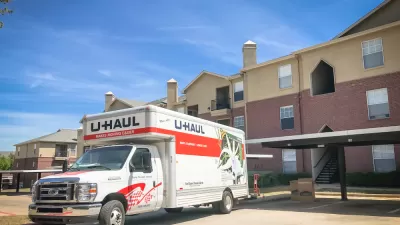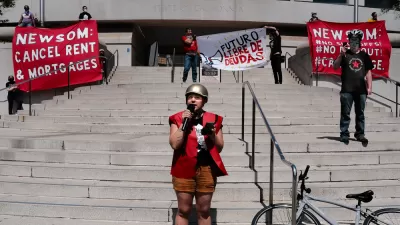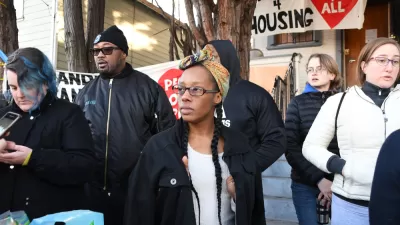Eviction moratoriums are only as good as their enforcement, as one man’s harrowing story in New Orleans shows.

In late March, just as New Orleans became one of the epicenters of the nation’s fight against the novel coronavirus, sanitation worker Bobby Parker, 56, found himself locked out of his apartment for paying his rent four days late.
As Parker walked away from his locked apartment, top New Orleans officials were begging people to stay in their homes, to help fight the pandemic. Earlier that month, the city’s Civil District Court judges had halted all residential evictions starting on March 13, a suspension that will be in place until at least April 30. And last week, after a legal-aid lawyer from Southeastern Louisiana Legal Services filed a petition on Parker’s behalf, the court’s on-duty judge ruled that Parker’s eviction had been unlawful and ordered Parker’s landlady to change the locks back to fit his key.
But Parker’s landlady, 92-year-old Bettie Salles, has refused to comply. She hung up the phone when asked about the matter, then sent a text saying: “REPORT THIS: pay the $2,395 due in cash today.”
It’s unclear how Salles reached that amount, since Parker’s monthly rent is $446 and no one is contending that he has missed any prior rent payments.
Though it’s cold comfort, Parker is not alone. While some property owners are working with tenants who can’t pay rent, says Hannah Adams of Southeastern Louisiana Legal Services’s housing unit, other landlords are “threatening eviction and using other tactics to bully tenants.” Some have refused to make necessary repairs or forced tenants to sign notes promising that they will pay all rent due once the pandemic has eased.
Frank Southall, lead organizer for the Jane Place Neighborhood Sustainability Initiative, said he’s heard much more about threatened evictions since March 31, as the first mid-pandemic rent payment is due for many tenants. “These are now becoming so common,” says Southall. “The landlord tells someone they have to leave, either because they don’t know the law, or don’t care, or are deliberately being deceitful to their tenants.”
...
FULL STORY: High-Risk, Essential, and Illegally Evicted

Montreal Mall to Become 6,000 Housing Units
Place Versailles will be transformed into a mixed-use complex over the next 25 years.

Planetizen Federal Action Tracker
A weekly monitor of how Trump’s orders and actions are impacting planners and planning in America.

DARTSpace Platform Streamlines Dallas TOD Application Process
The Dallas transit agency hopes a shorter permitting timeline will boost transit-oriented development around rail stations.

Study: 4% of Truckers Lack a Valid Commercial License
Over 56% of inspected trucks had other violations.

Chicago Judge Orders Thousands of Accessible Ped Signals
Only 3% of the city's crossing signals are currently accessible to blind pedestrians.

Philadelphia Swaps Car Lanes for Bikeways in Unanimous Vote
The project will transform one of the handful of streets responsible for 80% of the city’s major crashes.
Urban Design for Planners 1: Software Tools
This six-course series explores essential urban design concepts using open source software and equips planners with the tools they need to participate fully in the urban design process.
Planning for Universal Design
Learn the tools for implementing Universal Design in planning regulations.
City of Mt Shasta
City of Camden Redevelopment Agency
City of Astoria
Transportation Research & Education Center (TREC) at Portland State University
US High Speed Rail Association
City of Camden Redevelopment Agency
Municipality of Princeton (NJ)





























